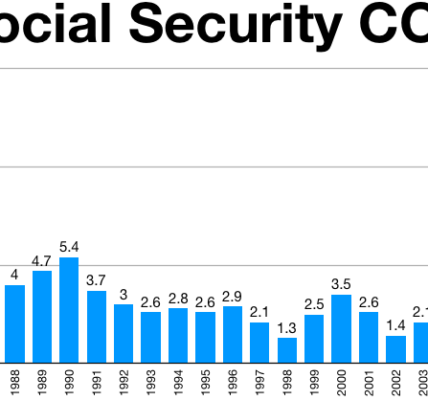In a recent study conducted by Fidelity Investments, it has been revealed that the average 65-year-old retiring today could expect to spend a staggering $157,500 on healthcare costs throughout their retirement, even with Medicare coverage. For married couples, this rate increases to a daunting $315,000. These numbers have remained flat from the previous year, thanks to the Inflation Reduction Act’s provisions, which are expected to limit out-of-pocket prescription drug costs for retirees beginning in 2025.
“Understanding what your healthcare costs may be in the future is an essential part of the retirement planning process,” said Hope Manion, Fidelity Workplace Consulting senior vice president and chief actuary. While this year’s estimate offers some relief from a decade of increasing healthcare costs, retirees are still expected to cover significant expenses beyond what Medicare covers.
Inflation Reduction Act’s Impact on Medicare Part D
The Inflation Reduction Act, passed in 2023, contains provisions aimed at improving the Medicare program and expanding benefits for retirees. One significant change is that Medicare will now have the ability to negotiate with drug manufacturers to lower the price of certain brand-name Medicare Part B and Part D drugs. Additionally, drug companies that increase their drug prices faster than the rate of inflation will be required to pay Medicare a rebate.
“Our analysis finds that limits on how much retirees can spend on prescriptions covered by Medicare Part D from the Inflation Reduction Act are likely to temporarily offset the overall inflationary trend of healthcare costs for retirees,” explained Manion. “Even so, those planning for retirement need to build a plan that incorporates the still-high cost of healthcare and the medical and drug expenses not covered by Medicare.”
Save for Future Medical Bills with Health Savings Accounts (HSAs)
Despite the projected high costs of healthcare for retirees, there are ways to prepare and save for future medical expenses. One such option is to open a health savings account (HSA). An HSA functions as a savings or investing account that helps individuals save for healthcare while receiving tax benefits.
HSAs provide the opportunity to accumulate interest like a traditional savings account, but some also offer the chance to invest in securities like mutual funds, potentially earning market returns. However, to open an HSA account, it must be paired with an eligible high-deductible health insurance plan (HDHP).
Paying Down Debt for a Secure Future
For those facing high-interest debt that may interfere with their retirement savings or healthcare costs, one possible solution is considering a personal loan at a lower interest rate. Websites like Credible offer the convenience of comparing options from different lenders at once, making the process smoother and more accessible.
Planning for retirement and managing healthcare costs are critical aspects of securing financial stability during one’s golden years. The Inflation Reduction Act aims to mitigate rising healthcare expenses for retirees, but it is still essential for individuals to understand and plan for their future healthcare needs properly. Initiatives such as opening HSAs and managing debt responsibly can contribute significantly to a more secure and financially sound retirement.
In conclusion, with healthcare costs expected to remain high for retirees, staying informed and making informed decisions regarding retirement planning and managing debt are vital steps towards a comfortable and worry-free retirement. By taking advantage of available tools like HSAs and seeking lower interest rates, individuals can pave the way for a more financially stable future in their golden years.
Download our app MadbuMax on the Apple App Store for the latest news and financial tools. Interested in getting your finances in order do not forget to check Dr. Paul Etienne’s best-seller book on personal finance. To access more resources, tools, and services please click here. Also, do not forget to follow Dr. Etienne on IG or Twitter.





